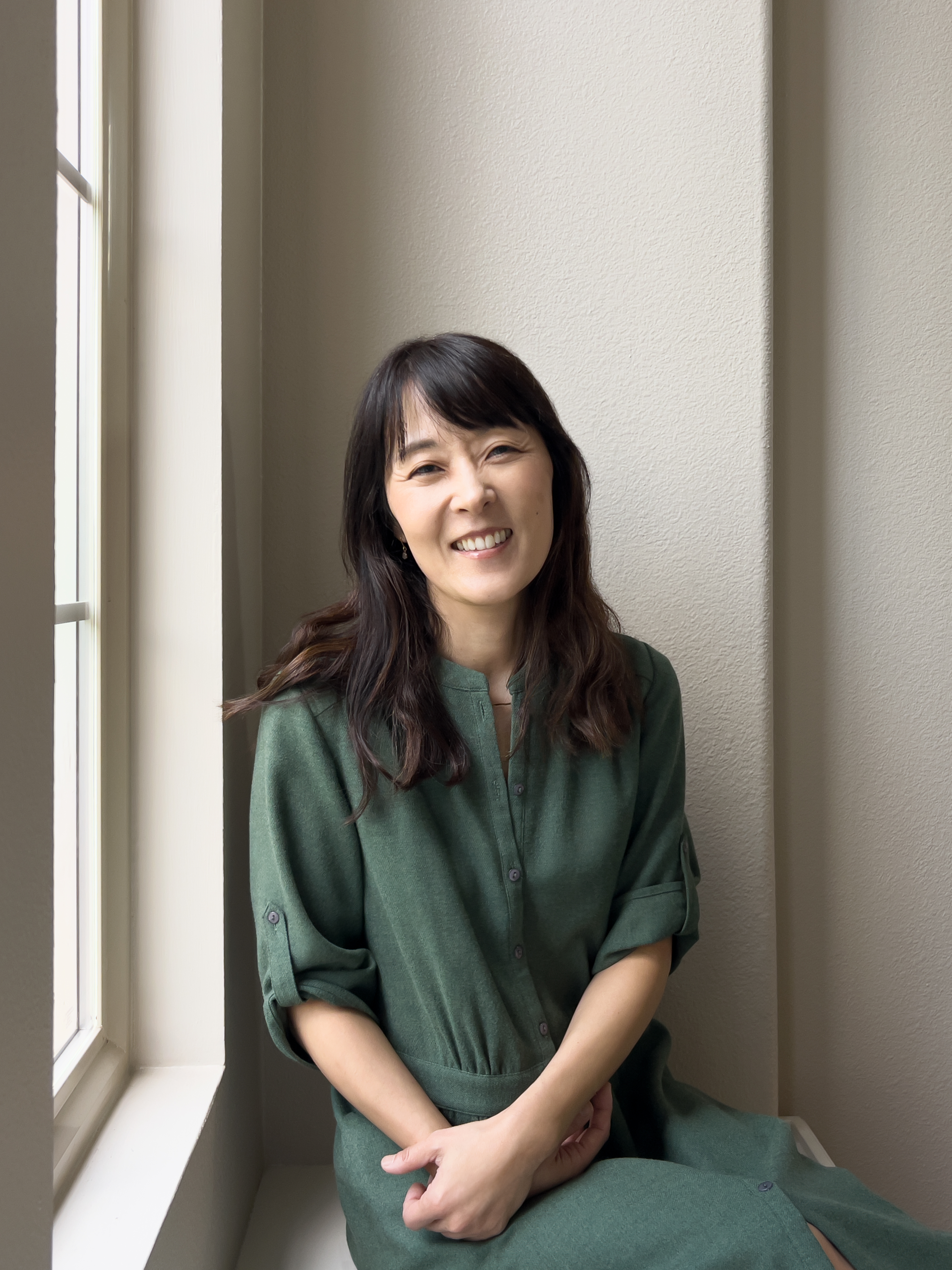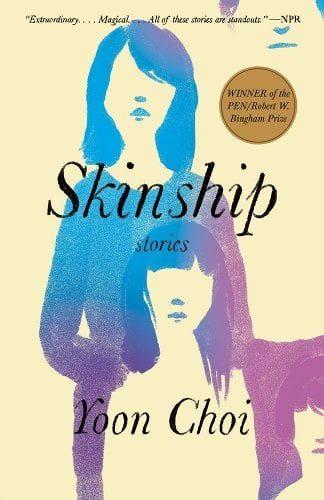Yoon Choi is the author of Skinship, an NPR Best Book of the Year, Fresh Air Ten Best Book of the Year, Kirkus Reviews Best Book of the Year, winner of the PEN/Robert W. Bingham Prize, gold medalist at the California Book Awards, and longlisted for the Story Prize. Her writing has appeared in The New York Times, New England Review, Best American Short Stories 2018, and elsewhere. She received her MA at Johns Hopkins University and was a Stegner Fellow at Stanford University. Born in Korea and raised in New York, she currently lives in Orange County with her husband and four children.

-
Skinship: StoriesFrom"Skinship"
By the end of the day, Ji-ho had moved things around, managing, even, to reposition an oak dresser by himself, whereas our mother and I, for all the years we would occupy the middle room, would never take down my cousin’s Star Wars poster, his Carnegie Mellon pennant. Every now and then, she and I would start up the same old argument about who slept on the floor and who slept on the twin bed. Each of us trying to urge comfort on the other. Neither of us knowing how to commit an act of selfishness.
 Skinship : Stories
Skinship : Stories- Print Books
- Bookshop
-
Skinship: StoriesFrom"Skinship"
“Hello, my name is,” my uncle coached. “Try it,” said our aunt. “Quickly now,” said our mother. Under the table, I pressed my leg against Ji-ho’s, communicating a tense warning if he dared laugh.
“Hello, my name is So-hyun.”
“Hello, my name is Ji-ho.”
“More louder,” our uncle said. “With confidence.” Row-der. Con-pi-densh. Suddenly, I was caught unprepared by the thought of our father. How he could do all the accents, use all the slang, say things like “shit” and “cash” and “I should be so lucky” with a touch of insolence.
 Skinship : Stories
Skinship : Stories- Print Books
- Bookshop
-
Skinship: StoriesFrom"Skinship"
I desperately wished that he, our father, could continue to be a silence, an absence, or even a faithless promise for some future time. But there he was. What would he do? What would he say? My brother, Ji-ho, wondered too. I could sense it in his quick, light, audible breathing. Our father took a step forward. He looked toward our mother. “Ja-gi-ya,” he said to her. This is a thing that Korean men call their wives. It is sometimes translated as “honey” or “sweetie.” But what it literally means is “you-yourself,” and behind that is still another meaning: “my-own-self.” And then he told her to move aside.
 Skinship : Stories
Skinship : Stories- Print Books
- Bookshop
"It’s Choi’s approach, the way her stories unexpectedly splinter out from a single life to touch upon decades of family history shaped by immigration, that makes them something special. . . . All these stories are standouts, but the title story is in a class of its own.” —Maureen Corrigan, Fresh Air/NPR [on Skinship]
"A rich and engaging new voice. . . . With refreshing amplitude, patience, and (dare I say) wisdom, Choi’s stories explore the complexities of her characters’ diverse experiences.” —Claire Messud, Harper’s [on Skinship]
“In every sense of the word ‘skinship,’ there is an element of affection, one that seeps through every page of Choi’s debut. . . . Choi’s characters live, forget, make bonds, break them, heal them or not. Their affections are no less deep for the circumstances that often separate them from one another.” —New York Times Book Review [on Skinship]
Yoon Choi's supple prose propels the reader through these unhurried, layered stories of the Korean diaspora, exploring the bonds and rifts between generations and the weight of secrets. Each story seems to possess the richness and amplitude of a novel: the sentences gleam, the observations are precise, the compassion limitless. Choi’s ability to create empathy without eliding distance makes this a debut of uncommon poise and maturity.